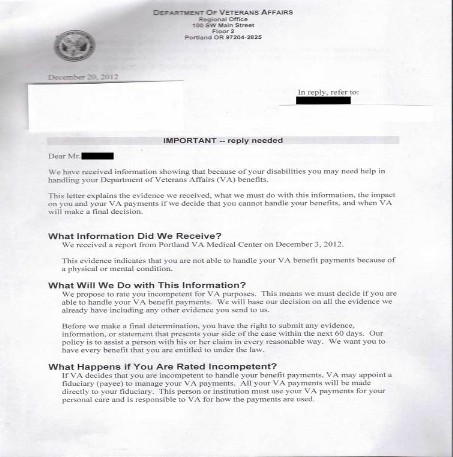The Stories Out There are Lies, but the Truth?
By Gordon Duff, Senior Editor
Over 550,000 Americans can’t own firearms because of “mental incompetence.” 21% of those are veterans.
Editor: A note I think is needed; the article below will describe a “dual system” for establishing broad mental disability, enough to deny weapons rights. It is very important that veterans carefully review this article in its entirety. If veterans avoid needed care because of misinformation or the very real threat outlined below, it would not only be a disaster but one that groups like the American Enterprise Institute wish to bring about. This article isn’t the “end all,” but a sign that veterans need to remain vigilant in maintaining their rights.
Stories about “new letters” or a “new law” are total bunk. The law that authorizes gun seizures for those “adjudicated mentally ill” was passed in 1997 but nothing was said about it for over 15 years. The law that is “in force” is the same one every gun owner in America is subject to, the question that is on every weapons background check and has been for many years.
Why bring it up now, why lie about it? Why victimize veterans with vicious scares and rumor mongering?
 The wild stories are being used to terrify vets and are, in fact, preying on veterans, particularly those with PTSD. It isn’t just vets, nearly half of the police officers and firefighters in the US suffer from varying degrees of PTSD.
The wild stories are being used to terrify vets and are, in fact, preying on veterans, particularly those with PTSD. It isn’t just vets, nearly half of the police officers and firefighters in the US suffer from varying degrees of PTSD.
Will they be disarmed also? You forget, of our men and women in combat, nearly 40% of them carry an active diagnosis of Post Traumatic Stress with most under current treatment though both armed and in combat as we go to press.
There are critical issues that can’t be ignored. There very well could be new legislation aimed at veterans.
There just isn’t.
However, there is a differentiation between the handling of issues of mental competence or “mental defect” between those under medical care through the VA and those who are not. Please note:
Anyone who is not being treated, totally voluntarily, by the VA is NOT subject to VA diagnosis.
Also note:
No one who isn’t ruled “a danger to him or herself or other” and found “incompetent” to handle his or her own affairs is not “mentally incompetent.” The real letter, featured above, explains the long standing process.
The facts are below, carefully footnoted. Please send this article to every veteran. This is how things are currently. This is not to say things can’t change and that what was written about, with pure malice toward American veterans, couldn’t come true.
Please note those websites that carried the false story or those who forwarded the email. Take them off your Christmas/Chanukah card list. Now…just the facts:
On June 26, 2008, in full committee markup, Senator Burr successfully amended the Veterans’ Medical Personnel Recruitment and Retention Act of 2008 (S. 2969) with language that would have provided that “a veteran, surviving spouse, or child who is mentally incapacitated, deemed mentally incompetent, or experiencing an extended loss of consciousness shall not be considered adjudicated as a mental defective” for purposes of the Gun Control Act, “without the order or finding of a judge, magistrate, or other judicial authority of competent jurisdiction that such veteran, surviving spouse, or child is a danger to him or herself or others.” Senator Burr introduced a bill, the Veterans 2nd Amendment Protection Act (S. 3167), that would have achieved the same ends as his amendment to S. 2969.
In the 111th Congress, Senator Burr reintroduced his bill as S. 669, and the Senate Committee on Veterans Affairs reported this bill (S.Rept. 111-27) on June 16, 2009. Representative Jerry Moran introduced a similar bill (H.R. 2547).
Mental Defective Adjudications Under 27 CFR §478.11, the term “adjudicated as a mental defective” includes a determination by a court, board, commission, or other lawful authority that a person, as a result of marked subnormal intelligence, or mental illness, incompetency, condition, or disease (1) is a danger to himself or others, or (2) lacks the mental capacity to manage his own affairs. The term also includes (1) a finding of insanity by a court in a criminal case and (2) those persons found incompetent to stand trial or found not guilty by reason of lack of mental responsibility pursuant to articles 50a and 72b of the Uniform Code of Military Justice, 10 U.S.C. §§850a, 876(b).
This definition of “mental defective” was promulgated by the ATF in a final rule published on June 27, 1997.50 In the final rule, the ATF noted that the VA had commented on the “proposed rulemaking” and had correctly interpreted that “adjudicated as a mental defective” includes a person who is found to be “mentally incompetent” by the Veterans Benefit Administration (VBA). Under veterans law, an individual is considered “mentally incompetent” if he or she lacks the mental capacity to contract or manage his or her own affairs for reasons related to injury or disease (under 38 CFR § 3.353).51 In a proposed rulemaking, the ATF opined that the inclusion of “mentally incompetent” in the definition of “mental defective” was wholly consistent with the legislative history of the 1968 Gun Control Act.52 Reportedly, the VA could have been the only federal agency that had promulgated a definition like “mentally incompetent” that overlapped with the term “mental defective.”53
Veterans, Mental Incompetency, Firearms Eligibility In November 1998, the VBA provided the FBI with disqualifying records on 88,898 VA beneficiaries, whom VA rating specialists had determined to be “mentally incompetent” based on medical evidence that they were incapable of managing their own affairs.54 Thus, a fiduciary (or designated payee) was appointed for them. During the determination process, beneficiaries were notified that the VA was proposing to rate them “mentally incompetent,” and they were able to submit evidence to the contrary if they wished.55 This determination process is still followed today at the VA.56
The Veterans Medical Administration has not submitted any disqualifying records on VA beneficiaries to the FBI for inclusion in NICS for any medical/psychiatric reason (like PTSD), unless those veterans had been involuntarily committed under a state court order to a VA medical facility because they posed a danger to themselves or others. In those cases, the state in which the court resides would submit the disqualifying record to the FBI, if such a submission would be appropriate and permissible under state law.57
Nevertheless, the decision by the VA to submit VBA records on “mentally incompetent” veterans to the FBI for inclusion in the NICS mental defective file generated some degree of controversy in 1999 and 2000.58 Critics of this policy underscored that veterans routinely consented to mentally incompetent determinations so that a fiduciary (designated payee) could be appointed for them. Those critics contended that to take away a veteran’s Second Amendment rights without his foreknowledge was improper. They also pointed out that no other federal agencies were providing similar disqualifying records to the FBI. This controversy subsided, but it reemerged when Congress considered the NICS improvement amendments (described above). Also, as of April 30, 2008, VA records made up about one-fifth (or 21.0%) of all the 552,800 federal and state records in the NICS mental defective file.
Endnotes
50 Federal Register, vol. 62, no. 124, June 27, 1997, p. 34634.
51 Federal Register, vol. 61, no. 174, September 6, 1996, p. 47095.
52 Ibid.
53 Personal communication with Compensation and Pension Program staff, Department of Veterans Affairs, July 9, 2008.
54 Ibid.
55 Ibid.
56 Ibid.
57 For further information on the treatment of mental illness and substance abuse for the purposes of gun control, see Donna M. Norris, M.D., et al., “Firearm Laws, Patients, and the Roles of Psychiatrists,” American Journal of Psychiatry, August 2006, pp. 1392-1396.
58 John Dougherty, “VA Give FBI Health Secrets: Veterans’ Records Could Block Firearms Purchases,” WorldNet Daily.com, June 22, 2000; and “VA Defends Vets’ Records Transfers to NICS System,” New Gun Week, vol. 35, issue 1650, July 10, 2000, p. 1.

Gordon Duff posted articles on VT from 2008 to 2022. He is a Marine combat veteran of the Vietnam War. A disabled veteran, he worked on veterans and POW issues for decades.
Gordon is an accredited diplomat and is generally accepted as one of the top global intelligence specialists. He manages the world’s largest private intelligence organization and regularly consults with governments challenged by security issues.
Duff has traveled extensively, is published around the world, and is a regular guest on TV and radio in more than “several” countries. He is also a trained chef, wine enthusiast, avid motorcyclist, and gunsmith specializing in historical weapons and restoration. Business experience and interests are in energy and defense technology.
ATTENTION READERS
We See The World From All Sides and Want YOU To Be Fully InformedIn fact, intentional disinformation is a disgraceful scourge in media today. So to assuage any possible errant incorrect information posted herein, we strongly encourage you to seek corroboration from other non-VT sources before forming an educated opinion.
About VT - Policies & Disclosures - Comment Policy



